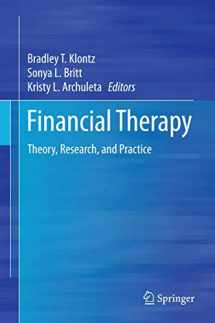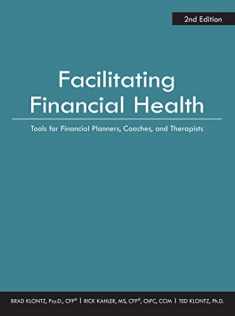
Financial Therapy: Theory, Research, and Practice
Book details
Summary
Description
Money-related stress dates as far back as concepts of money itself. Formerly it may have waxed and waned in tune with the economy, but today more individuals are experiencing financial mental anguish and self-destructive behavior regardless of bull or bear markets, recessions or boom periods. From a fringe area of psychology, financial therapy has emerged to meet increasingly salient concerns.
Financial Therapy is the first full-length guide to the field, bridging theory, practical methods, and a growing cross-disciplinary evidence base to create a framework for improving this crucial aspect of clients' lives. Its contributors identify money-based disorders such as compulsive buying, financial hoarding, and workaholism, and analyze typical early experiences and the resulting mental constructs ("money scripts") that drive toxic relationships with money. Clearly relating financial stability to larger therapeutic goals, therapists from varied perspectives offer practical tools for assessment and intervention, advise on cultural and ethical considerations, and provide instructive case studies. A diverse palette of research-based and practice-based models meets monetary mental health issues with well-known treatment approaches, among them:
- Cognitive-behavioral and solution-focused therapies.
- Collaborative relationship models.
- Experiential approaches.
- Psychodynamic financial therapy.
- Feminist and humanistic approaches.
A text that serves to introduce and define the field as well as plan for its future, Financial Therapy is an important investment for professionals in psychotherapy and counseling, family therapy, financial planning, and social policy.


We would LOVE it if you could help us and other readers by reviewing the book
Book review





